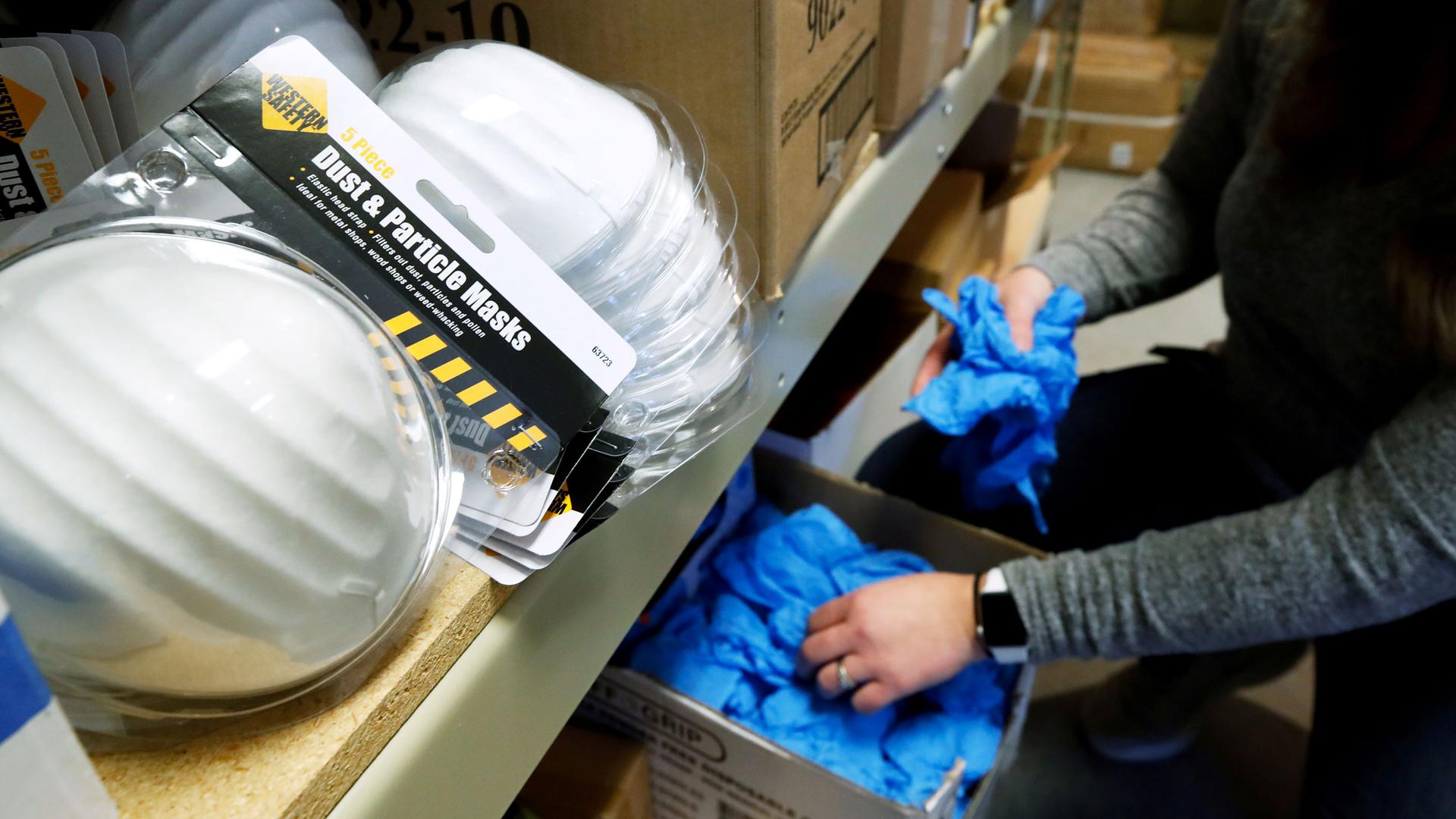US President Donald Trump announced on Friday he had put the wartime Defense Production Act into action to aid the fight against the coronavirus after saying earlier this week he would invoke the measure when needed.
The measure is meant to allow the US government to speed production of masks, respirators, ventilators and other needed equipment.
“We’re using the act. The act is very good for things like this. We have millions of masks that we’ve ordered. They will be here soon. We’re having them shipped directly to states,” Trump said.
Trump said he put the measure into action on Thursday evening. He and Senate Democratic leader Chuck Schumer spoke about the issue in a phone call on Friday.
When asked why he was putting it into action now, the president told reporters it would be used to ensure US states could get masks and other equipment needed to fight the virus.
The law, which dates to the Korean War of the 1950s, grants the president broad authority to “expedite and expand the supply of resources from the US industrial base to support military, energy, space, and homeland security programs,” according to a summary on the Federal Emergency Management Agency website.
The World’s Marco Werman spoke with Juliette Kayyem, a Harvard University professor and former Department of Homeland Security adviser, about the implications of the Defense Production Act.
Related: Pandemic threatens stability, demands ‘coordinated global action,’ says Susan Rice
Marco Werman: The Defense Production Act was enacted at the beginning of the Korean War in 1950. Juliette, what is it supposed to do?
Juliette Kayyem: So, it gives a president authority to do two things as regards the private sector: One is to simply acquire from them — we have to pay — but acquire from them goods that they may already have. The other is that it can force or compel manufacturing requirements from manufacturers.
So, a clothing factory, for example, might be asked to crank out a bunch of masks, face masks?
That would be exactly the expectation at this stage.
Related: Russia is trying to spread a viral disinformation campaign
But we’re hearing mixed messages from the White House. Is it still clear as to whether the DPA is in effect?
So, the act has two parts. The first is a president invokes it. Clearly, Donald Trump has done that. It has the second part, which is it has to be executed. What do you need? What companies have it? And have you commanded the companies to do it? That part has not happened. We’re at the surge stage, right? So, we activated, meaning all of us are home, we’re staying home, we’re going to protect each other. And now, we have to surge resources to these states and locals who are getting hit on the front line, as we’ve seen in Italy and elsewhere, with what they need.
Related: How ‘war’ with coronavirus could lead to lasting government overreach
What other powers does the Defense Production Act give the president? And in a crisis, is there a risk of overreach with any of those other powers?
The Defense Production Act basically allows the president to take charge of, essentially, a private company’s business plan. That’s basically what it does. And you don’t take over the company. You just sort of say, “OK, instead of keeping this, we’re going to take it.” And everyone’s compensated, so it’s not a stealing, it’s not a taking. It’s just a way of a president getting manufacturing or other resources. So, I’m asked this question a lot, like, about the overreach. Doesn’t this all seem shocking? No one who saw what was happening in China or Italy would say that the criticism is the United States overreacting at this stage. We are having piecemeal responses. We don’t have a national effort. We have a president who’s still not able to speak honestly about either deficiencies in masks or what’s coming down the pike. I do think the American public is in a little bit of shock right now. And part of that, I think, comes from the failure of the president to, I think, get us ready for this.
This interview has been edited and condensed for clarity. Reuters contributed reporting.
